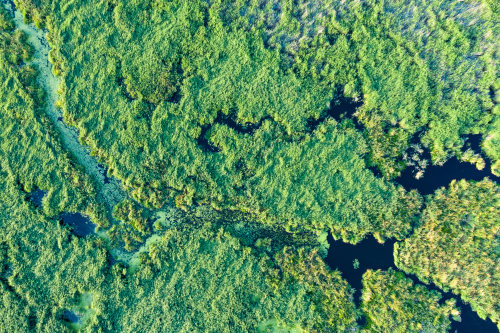GPSNR Working Groups Update: July 2023
Strategy and Objectives Working Group:
The Key Performance Indicators (KPIs) were successfully agreed upon during the June Hybrid meetings, and are awaiting review and approval for the OEMs KPI.
In pursuit of defining targets related to member’s water withdrawal within the KPIs, surveys have been sent out. The results from the water withdrawal surveys will be analyzed and integrated into the KPIs.
ASI has been selected to develop the Assurance Model for GPSNR and has commenced discussions. ASI’s assignment for the Assurance Model involves presenting a framework proposal before the 2023 General Assembly.
The completion of the first consultation for the Due Diligence System (DDS) was completed during the June Hybrid meetings. The second round of consultations for the Due Diligence System by ZSL has been initiated. A teleconsultation, scheduled for the end of July, will provide an opportunity to discuss the feedback obtained.
The Risk Subgroup has been working on the Traceability Pilot Field Trials, and consortiums Agridence and Koltiva have provided their midpoint updates.
ASI has finalized the initial version of the Risk Assessment Framework. Feedback has been collected to further enhance its effectiveness. Risk subgroup has extended an invitation to ASI to disclose the underlying formula of the Risk Assessment Framework. The initial trial of pre-setting Indonesia’s Risk level using the ASI risk tool has been completed. The results will aid in evaluating the feasibility of setting risk levels for 20 countries, with members’ feedback actively being incorporated to enhance user-friendliness.
Discussions between the Basel Institute and the Risk subgroup have commenced, this collaboration aims to investigate corruption risks within the supply chain.
The submission of Agridence and Koltiva’s final reports for the Traceability Enhancement will happen at the end of July. Subsequently, work will commence on fleshing out the Enhancing Traceability Report.
Smallholders Representation and Capacity Building (SCB) Working Group:
The discussion on Agroforestry Workshops for 2023-2024 has been successfully finalised. The Agroforestry-Income Diversification Taskforce will complete the contractual signing and then proceed to kick-start the preparation for agroforestry workshops in 2023-2024.
The HCSA-HCVN Field Trials task force has reviewed and provided feedback on the final report submitted by Daemeter. Additionally, the HCSA-HCVN Field Trials task force will revise and prepare to submit their final report.
The Thailand Agroforestry project has presented a progress report covering March to May 2023. The team is actively preparing for upcoming training sessions with smallholders.
The Indonesia National Subgroup will present quarterly progress reports to the SCB WG for the GAP Coaching and Disease Fighting projects in early August. The Thailand National Subgroup is currently evaluating proposals for Thailand GAP Coaching.
The Smallholders Policy-Equivalent (SPE) Taskforce is aiming to obtain endorsement from the SCB WG for the final recommendations of their report in early August.
Policy Toolbox Working Group:
The Transparent Reporting Requirements (TRR) for Year 2 have been successfully agreed upon and are now pending review and approval for the OEM category.
Petra Westerlaan, the selected consultant for the Working Group (WG), proposed a quantitative orientation for the reporting matrix. This quantification approach will simplify data aggregation and streamline the evaluation of annual progress. The WG has received Petra’s proposed reporting matrix and is all set to initiate teleconsultations in the first week of August. These sessions will facilitate valuable discussions on the feedback received, ensuring achievement of the most effective reporting system.
In addition, Agridence has presented their proposal for a new reporting requirements platform. They will keep the Working Group informed about its testing, launch, and any subsequent updates.
Shared Responsibility Working Group:
During the face-to-face meeting, the Governance and Guiding principles were presented, highlighting their importance in shaping the future direction of GPSNR. Manufacturers are now required to seek internal approval regarding the Governance Framework and subsequently provide a final version for approval to the GPSNR Executive Committee (EC) and General Assembly.
The SR WG is actively engaged in defining an inclusive shared investment framework, encompassing various forms of contribution such as in-kind support, financial contributions, and external funding. The outcomes of discussions at the Manufacturers category level will play a crucial role in shaping this framework.
Collaborating with the Secretariat and other WGs, the SR WG is committed to revamping discussions on data sharing and value transfer, recognizing their significance in achieving our objectives. These discussions will seek to optimize the sharing of data and the value derived from it.
To provide clarity and transparency, the WG aims to define the value and benefits associated with each category within GPSNR, ensuring that all stakeholders are aware of the advantages and opportunities available.
Furthermore, the WG, in collaboration with the Capacity Building WG, is working on developing a protocol to filter and evaluate proposals based on the Equity definition and the stakeholders identified by the EC. This process will ensure fair and comprehensive evaluation of proposals.
Lastly, an open co-chair position is available, and volunteers are welcomed to contribute their expertise and leadership to drive the WG forward. If you are interested in taking on this role, please step forward and join us in this important endeavour.





